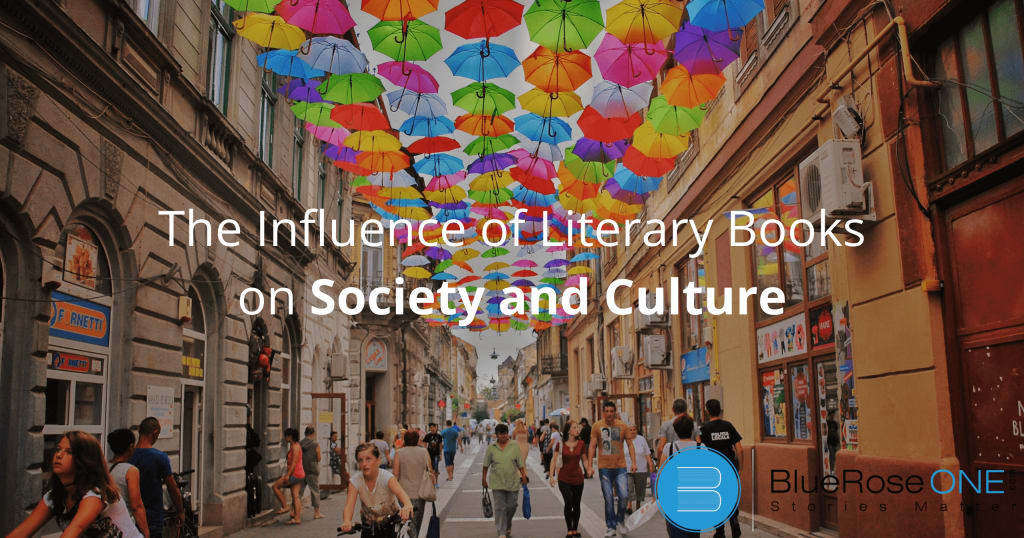The Influence of Literary Books on Society and Culture
Influence of Literary Books

Literature has always played a vital role in society by acting as a mirror reflecting the ideals, ideologies, and social mores of the day. From prehistoric societies to contemporary culture, literary works have been crucial in forming cultural norms and defining individual identities. We will delve into the historical significance and current relevance of literary books as we examine their enormous influence on society and culture in this essay.
Historical Overview of Literary Books
Ancient Civilizations and Their Literary Works
Ancient civilizations left behind a treasure trove of literary books that continue to captivate readers centuries later. From the epic poems of Homer in ancient Greece to the philosophical treatises of Confucius in ancient China, these literary works offer invaluable insights into the beliefs, values, and societal norms of their respective cultures.
The writings of ancient civilizations serve as a window into the past, providing a glimpse of the human experience across time and space. By studying these literary books, we gain a deeper understanding of our shared history and the evolution of human thought and expression.
Medieval Literature and Its Impact
The influence of medieval writing is particularly strong in the field of historical literature. The foundation of medieval literature is its window into the past, which helps us understand society and culture now. These literary books enthrall readers with their fascinating storytelling and everlasting themes; they range from epic poetry to allegorical tales.
By examining literary works from the Middle Ages, we can gain an understanding of the conflicts, values, and worldviews of earlier times and develop a more profound understanding of the human condition throughout history. We discover gems that inspire and have an impact on modern storytelling as we explore the rich fabric of medieval literature.
Enlightenment Era and the Rise of Literary Movements
Romanticism
A significant change in artistic expression occurred during the Enlightenment, as seen by the emergence of literary movements such as Romanticism. Literary Books that reflected the goals and aspirations of society were crucial in encapsulating the spirit of this era. Romanticism, which placed a strong focus on emotion, individualism, and the sublime, was influential in literature.
These literary books were not only enjoyable reads but also excellent means of delving into more complex societal and philosophical issues. Literary books from the Enlightenment Era, such as Wordsworth’s poetry and Jane Austen’s novels, continue to captivate readers and have a lasting impact on society and culture.
Realism
During the Age of Enlightenment, realism became a major literary movement that changed the literary landscape and the way that literature affected society and culture. Realistic art aimed to present commonplace events and hardships through an unvarnished, unadulterated lens, stemming from the desire to capture reality as it actually is.
Literary books were used as a means of examining the nuances of politics, society, and human psychology as well as the complexity of the human condition. By means of works that are distinguished by striking detail and intricate character development, realism subverted established literary conventions and provided readers with an enhanced comprehension of their surroundings. Through the power of storytelling, this movement not only changed the literary landscape but also had a lasting impact on society, encouraging empathy and insight.
Modernism
Modernism is a pillar in the literary movement landscape, transforming our understanding of and interaction with literature. Early in the 20th century, modernist literature began to appear, questioning established narrative patterns and delving deeply into novel subjects. Through the use of fragmented tales and the stream-of-consciousness approach, Modernist writers pushed boundaries and drew readers into a complex and contemplative world.
Timeless masterpieces that enthrall audiences even now were created during this era. The continuing influence of Modernist literary books on society and culture becomes distinctly substantial as we go deeper into the Enlightenment Era and its succeeding literary movements, influencing our comprehension of the human condition.
Influence on Society and Culture
Literary books have a profound impact on society and culture, influencing people’s thoughts and viewpoints for years to come. From classical epics to contemporary masterpieces, these pieces act as windows into the ideals, convictions, and hardships of their respective eras.
Literary books arouse empathy, spark change, and encourage thought through the complex web of narrative. They are the mainstay of intellectual conversation, provoking discussions and questioning accepted wisdom. Whether it’s Orwell’s revolutionary thoughts or Shakespeare’s timeless wisdom, literary books have had a profound impact on humanity’s collective consciousness, influencing how we view the world and ourselves...Continue reading





Comments
There are no comments for this story
Be the first to respond and start the conversation.